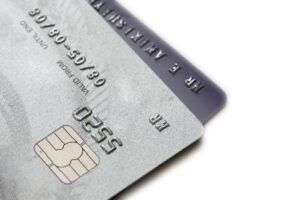By: Robert J. Nahoum

Debt collectors are known for their persistence when it comes to collecting debts. However, the Fair Debt Collection Practices Act (FDCPA) imposes certain restrictions on the methods used by debt collectors to collect debts. In particular, the FDCPA prohibits debt collectors from attempting to collect debts that have been discharged in bankruptcy.
Bankruptcy is a legal process that allows individuals and businesses to eliminate or restructure their debts. Once a debt has been discharged in bankruptcy, the consumer is no longer legally obligated to pay it. The discharge order is a court order that prohibits creditors and debt collectors from attempting to collect the debt in the future.
Despite this, some debt collectors may still try to collect debts that have been discharged in bankruptcy. This can be a violation of the FDCPA.
Under the FDCPA, debt collectors are prohibited from making false or misleading statements to consumers. Attempting to collect a debt that has been discharged in bankruptcy can be considered a false or misleading statement, as it misrepresents the consumer’s legal obligation to pay the debt.
Additionally, debt collectors are prohibited from using unfair or abusive practices in their attempts to collect debts. Continuing to attempt to collect a debt that has been discharged in bankruptcy can be considered an unfair practice, as it is a violation of the consumer’s legal rights.
If a consumer, the consumer should immediately notify the debt collector in writing that the debt has been discharged in bankruptcy. The consumer should include a copy of the discharge order as proof.
If the consumer receives a communication from a debt collector attempting to collect a debt that has been discharged in bankruptcy the consumer may be entitled to damages, including actual damages and statutory damages up to $1,000, as well as attorney’s fees and court costs.
Attempting to collect a debt that has been discharged in bankruptcy is a violation of the FDCPA. Debt collectors must comply with the provisions of the FDCPA when attempting to collect debts, and consumers have legal rights to protect them from unfair and abusive debt collection practices.
If you need help settling or defending a debt collection lawsuit, stopping harassing debt collectors or suing a debt collector, contact us today to see what we can do for you. With office located in the Bronx, Brooklyn and Rockland County, the Law Offices of Robert J. Nahoum defends consumers in debt collection cases throughout the Tristate area including New Jersey.
The Law Offices of Robert J. Nahoum, P.C
(845) 232-0202
www.nahoumlaw.com
info@nahoumlaw.com
